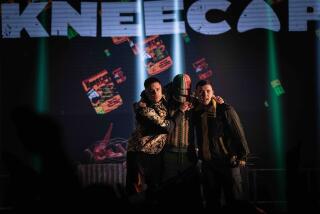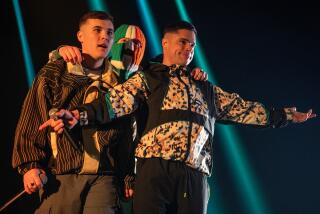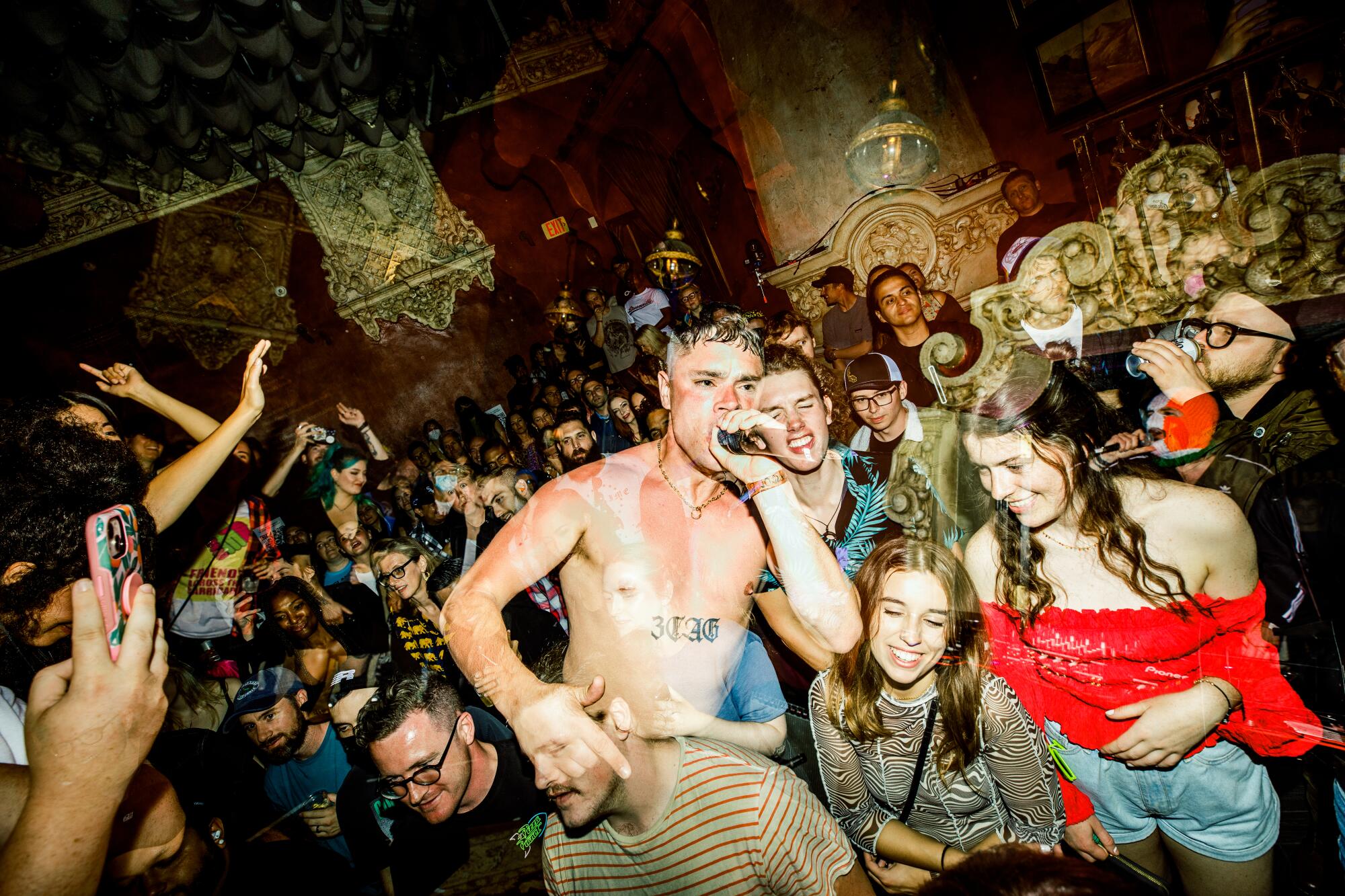
- Share via
It’s not even 8:30 on a Monday night, and already a good quarter of the roughly 200-person audience crammed within the converted courtyard that is Bardot’s stage for the weekly School Night concert series is bouncing around, drenched with sweat like it’s an all-night warehouse rave.
“C.E.A.R.T.A.,” they all scream in unison, spelling out the Irish word for “rights” and joining in for the chorus of Irish rap trio Kneecap’s breakthrough 2017 hit of the same name. But even as their energy remains, the rest of the chorus is a little tougher for some to sing along to. “Duidín lásta, tá mise ró-ghasta / Ní fheicfidh tú mise i mo sheasamh ró-fhada” just doesn’t roll off the tongue quite as easily.
While the band does speak perfectly fluent English, about 90% of their lyrics are in their native Irish, a language that was on the brink of obscurity before policy changes in the 2000s that led to Irish-language schools in pockets of the region and it officially being recognized as a minority language. On Wednesday, Irish received its latest boost in the political world when the U.K. launched a bill to formally make it an official language in Northern Ireland — a move its supporters say is long overdue.
Móglaí Bap and Mo Chara know their lyrics might land with a bigger audience outside of their home of Belfast if they switched to English, but that doesn’t mean they plan on changing their ways any time soon.
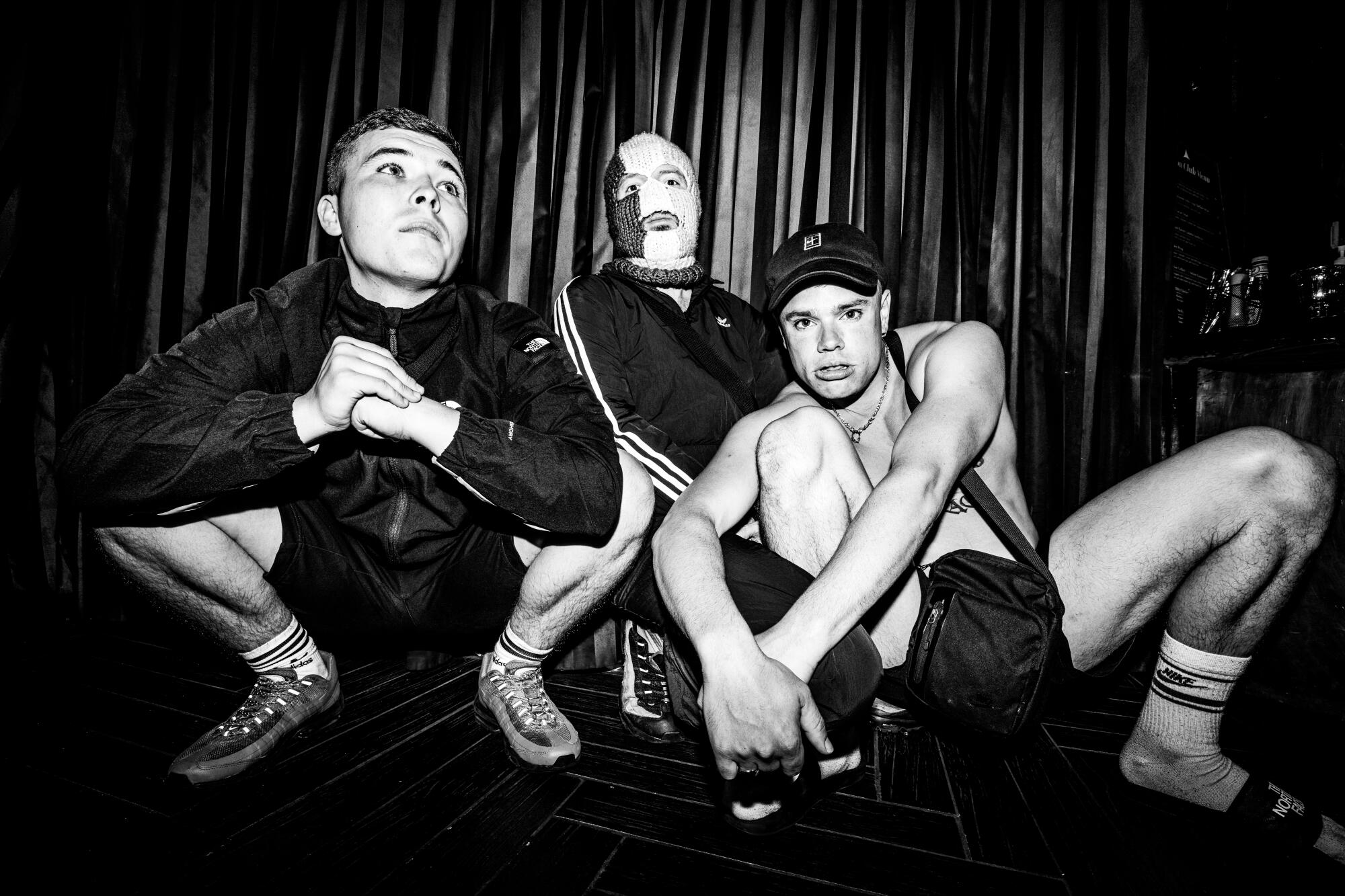
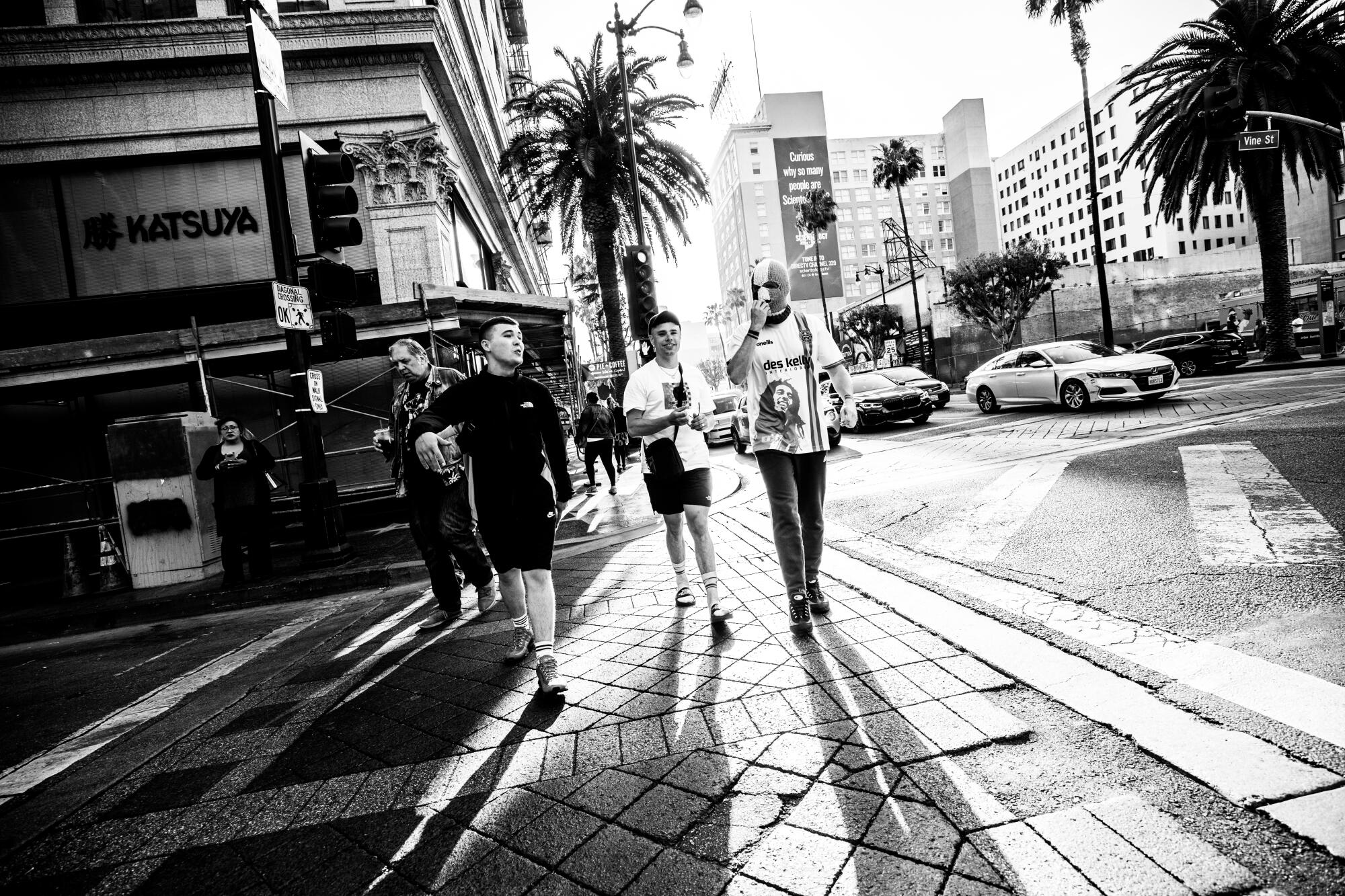
“We all speak Irish together every day, not English,” Mo Chara says while discovering Shake Shack for the first time on Hollywood Boulevard. “It’s natural for us to rap in Irish, but we mix the languages because we live in a place where the two languages are used with each other. It’s like Spanish and English here. We always say that it just means we have twice as many rhymes as anybody rapping in one language.”
“And we have twice as many ways to insult people,” Móglaí Bap adds.
While acts like South Korea’s BTS and Brazil’s Anitta have paved the way for mainstream musical success outside of English and Spanish, the two young rappers and balaclava-clad DJ Próvaí (all of the members use aliases to stay anonymous) aren’t exactly gunning for musical superstardom. Rather than selling out stadiums and tearing up the main stage of Coachella, Kneecap is focused on the message of their movement: a unified Ireland without British involvement.

Without diving too far down the rabbit hole of Irish politics, Kneecap’s desires are relatively in line with Irish republicanism (not to be confused with American Republicans). As a whole, their attitude and messaging are much closer to the generation of Irish kids who can find humor and cultural significance within the region’s violent history, as opposed to their parents and grandparents who lived through the turbulence.
“We come from a place with a lot of serious stories, trauma and PTSD for the last 30-40 years,” Móglaí Bap says. “So we’re political, but it’s very tongue-in-cheek. We wanted to take the seriousness and the sting out of it and incorporate elements of life that we as young people enjoy — like partying and taking Class A drugs. We’re political, but it’s not like a political party. We’re political with small p’s.”
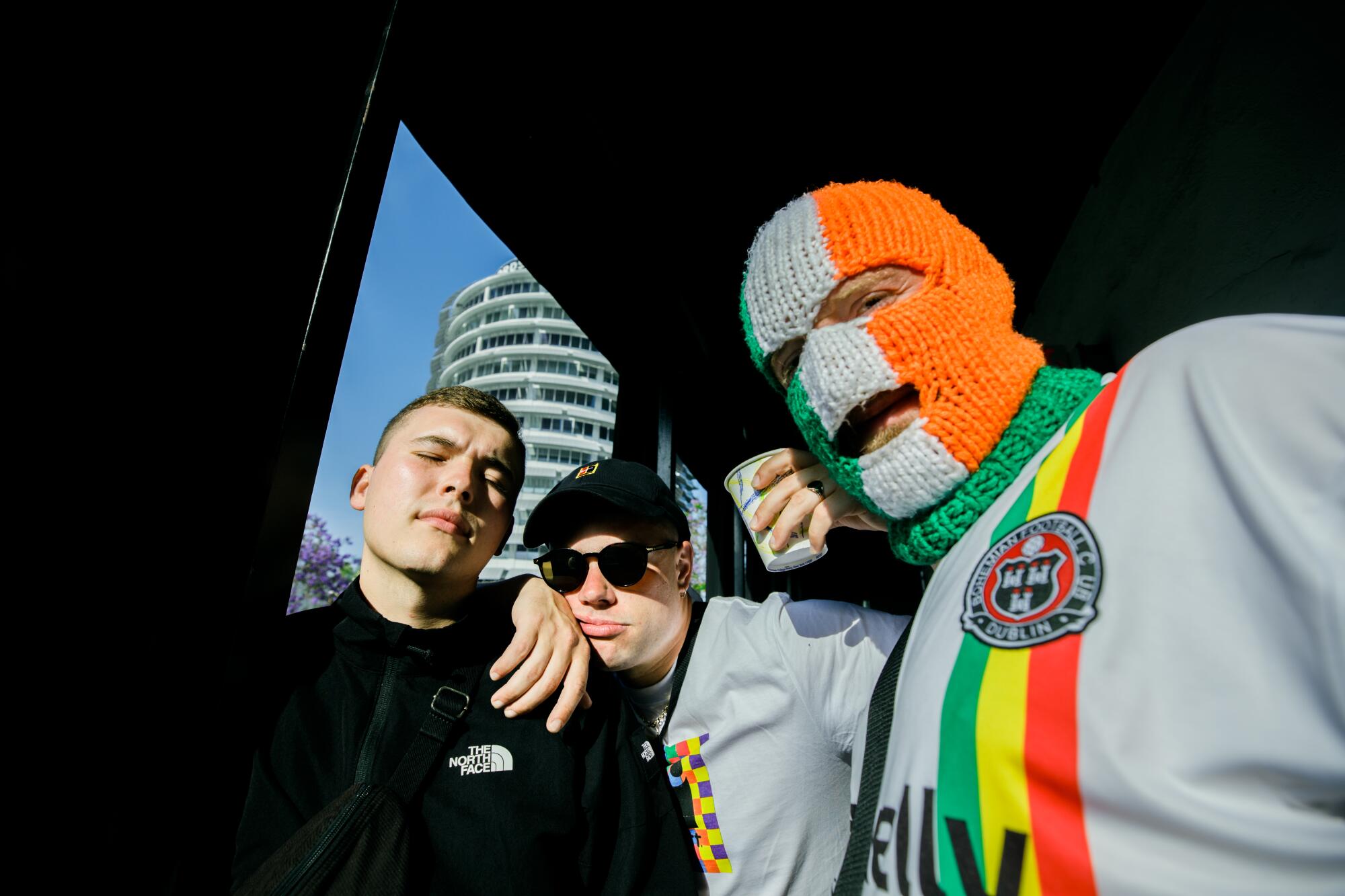
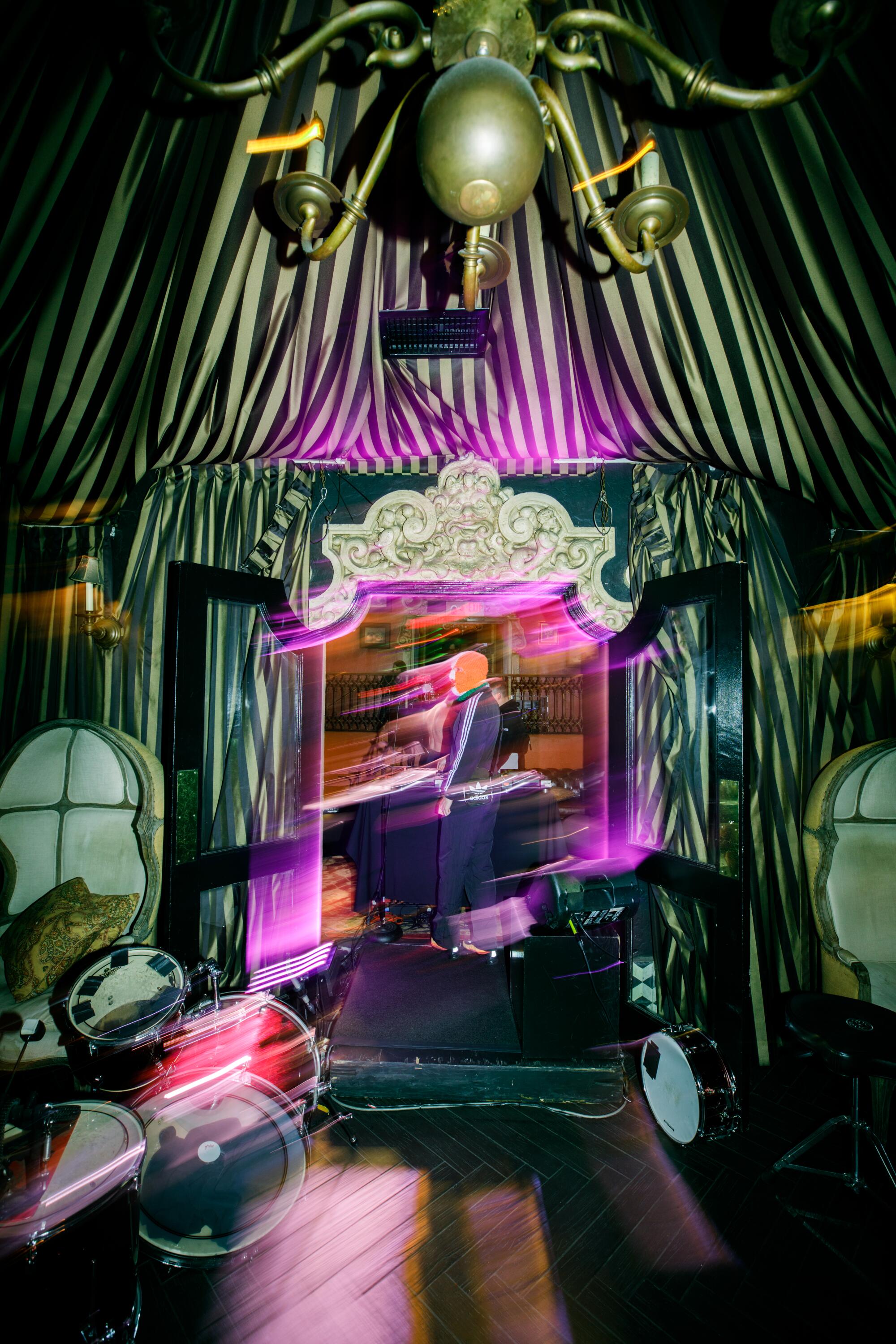
“When we were growing up, there was still a lot of sectarianism,” DJ Próvaí adds. “When people look back at the history, it was the British state who started the whole sectarianism, and it really wasn’t like that before 1969. People were all living in the same streets, and they were getting on well with each other — and then the British decided to come over and start shooting people and blaming each other and starting this sectarian divide. So we’re doing what we can to bridge that gap between the communities because we’ve got more in common with the working-class people from any background than somebody who’s sitting there in some big fancy house.”
Between bites of their Shake Shack burgers and explaining Irish politics two hours before their set at Hollywood’s Bardot, the trio is overflowing with jokes far too inappropriate to print and questions about California — particularly about In-N-Out. It’s their first time in the state, and after a disappointing Sunday evening in an Irish pub not up to their standards and a cloudy Monday morning spent at their hotel pool in Culver City, they’re wanting to see everything Los Angeles has to offer.
After all, they’re only in town for a handful of days on their trip to the States, which was put together as part of a showcase by the Irish government to spread Irish music beyond its regional boundaries. But as their millions of views on YouTube and tens of thousands of social media followers show, Kneecap’s music is already reaching disgruntled youths well outside of Ireland.
Walking through Amoeba Music after dinner, they immediately gravitate toward the rap section, spotting Jay-Z albums from an aisle away. Musically, comparisons to Beastie Boys are understandable, as Kneecap incorporates a rebellious energy that channels Belfast’s 40-year history of punk rock more than any modern hip-hop. When Kneecap drops into the ominous breakdown of “H.O.O.D” — which features a strong punk vibe and more English lyrics than many of their tracks — and repeats “It’s gonna be a bloodbath,” it sounds every bit as threatening to overprotective parents as rappers always have. Their balance between anti-establishment lyrics, explosive delivery, graphic humor and unrelenting charm is reminiscent of early Eminem.
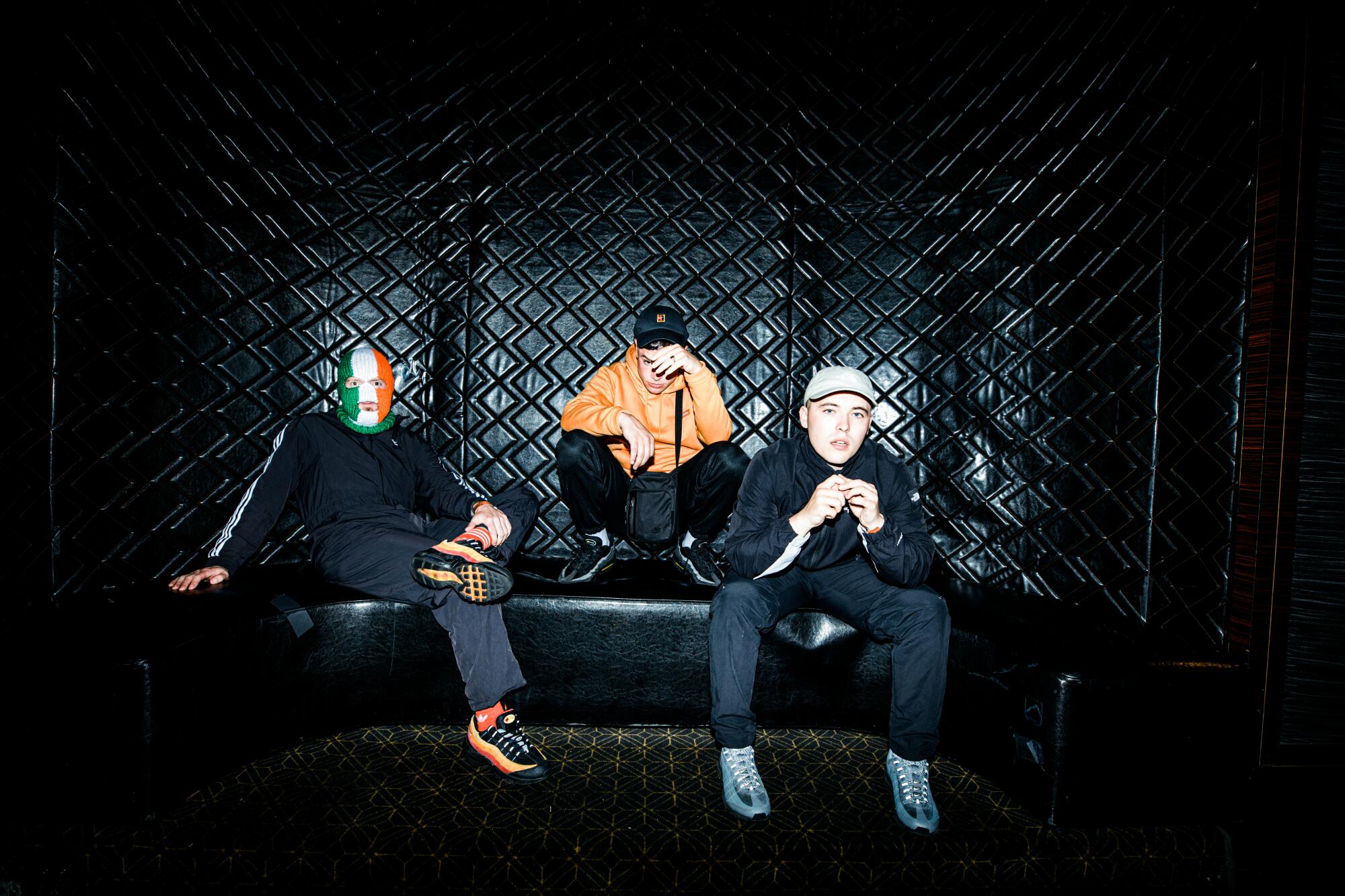
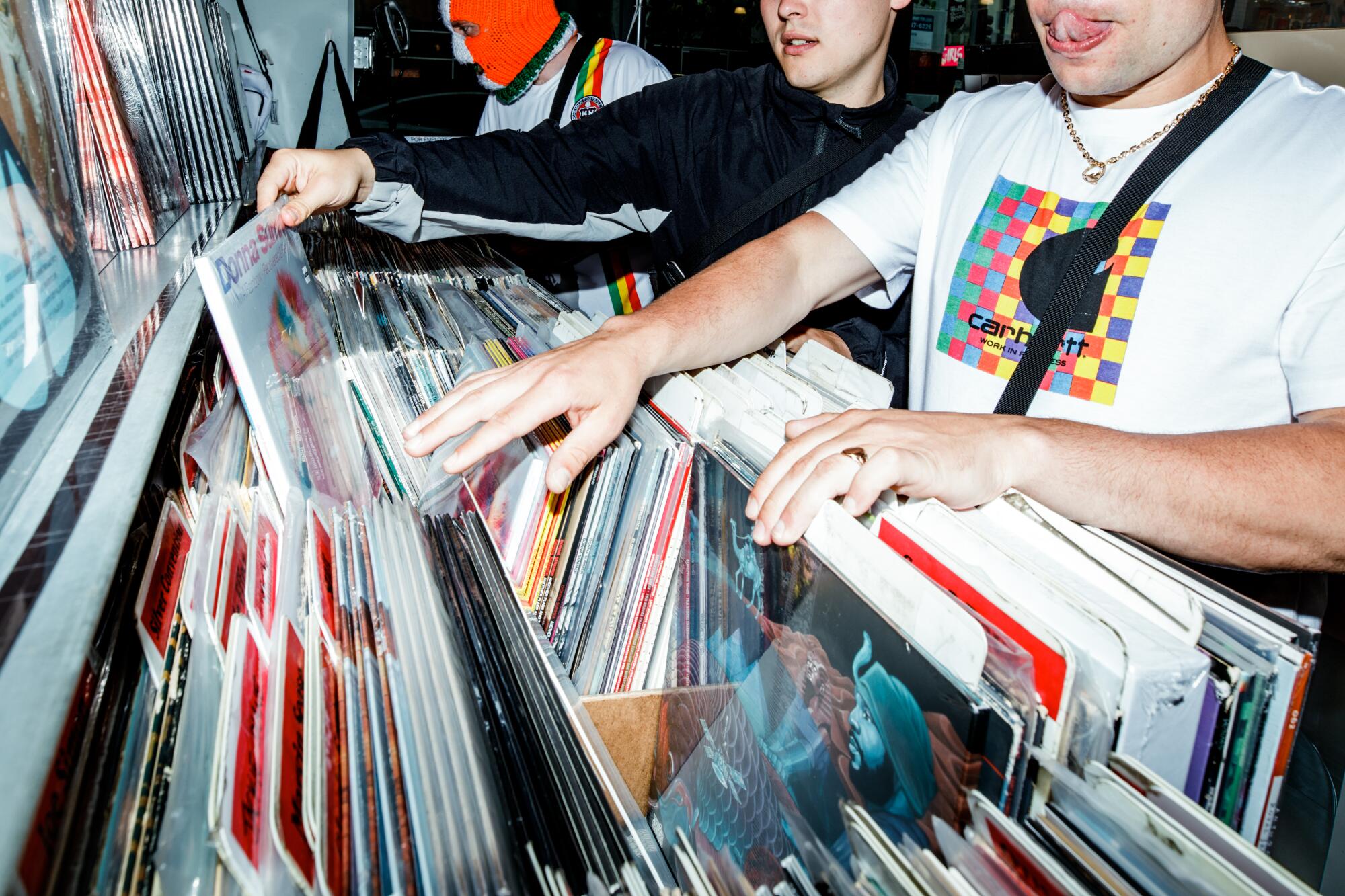
And much like Marshall Mathers, Kneecap has found objections from just about every political party in their region — the Democratic Unionist Party spoke out against them after they led chants of “Get the Brits out now” at a show the day after Prince William and Kate Middleton stopped by the same pub; RTÉ (Ireland’s national television and radio broadcast company) banned “C.E.A.R.T.A.” from being played on their Irish-language channel; and many politicians initially shared and supported the 2017 single for bringing the language to a new generation and genre of music before reversing course when learning that the song contained drug-filled, anti-cop lyrics.
“When we released our first song, everybody was assuming that it was some sort of nice hip-hop that had all the nice things, and we’re sitting around the fireplace, dancing and doing jigs,” Móglaí Bap says. “That kind of worked in our favor when people were sharing it without listening to it. No one’s done what we’ve done before us, so then people listened to what we were saying, and they didn’t like it. Not only people outside of our community, but people within our community don’t agree with us in some ways. But for us, it was only a bonus that these people didn’t like us.”

“We’ve ruffled a few feathers, but I think in all three of our books, we didn’t ruffle enough feathers,” Mo Chara adds. “The higher the person speaking out against you is, the better the PR is for you. So any time one of the political parties or whatever had to condemn us or when we’d get banned from somewhere, it was like a golden PR coin. If you’re a group and you’re not ruffling feathers, you’re doing something wrong.”
Over the course of their half-hour set on Monday night, Kneecap won over fans young and old. Those who stood and bobbed their head when they played “C.E.A.R.T.A.” early on were the same ones pumping their fists and chanting “Your sniffer dogs are s—” for the titular chorus of another fan-favorite song. While it may not have been the same four-digit crowds and festival stages they play across the Atlantic, their first performance in L.A. made it clear that at least parts of Kneecap’s message and energy are universal.
“Dogs shouldn’t have a job,” Mo Chara said from the stage. “No dog wants to be a cop.”
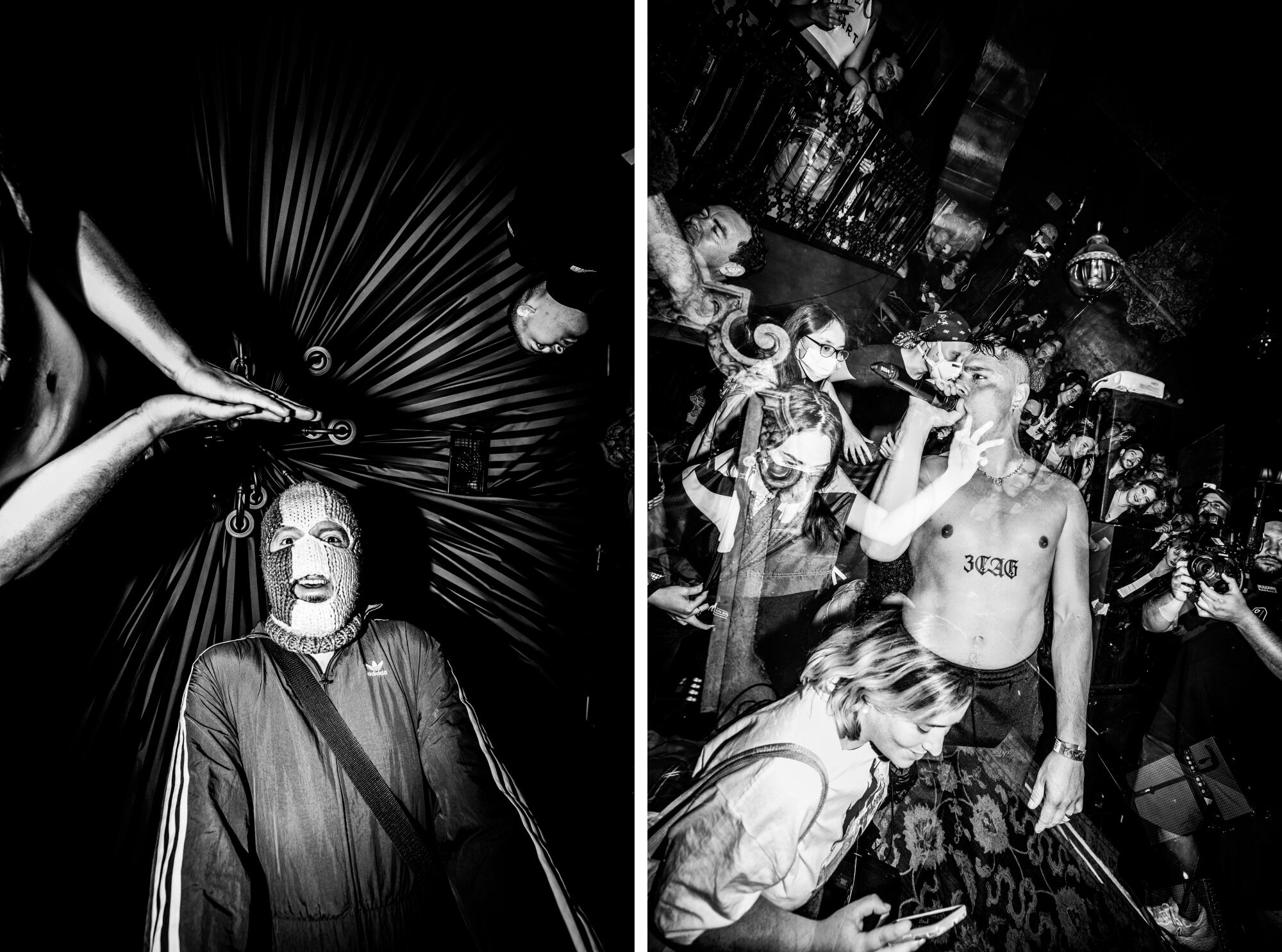
More to Read
The biggest entertainment stories
Get our big stories about Hollywood, film, television, music, arts, culture and more right in your inbox as soon as they publish.
You may occasionally receive promotional content from the Los Angeles Times.

